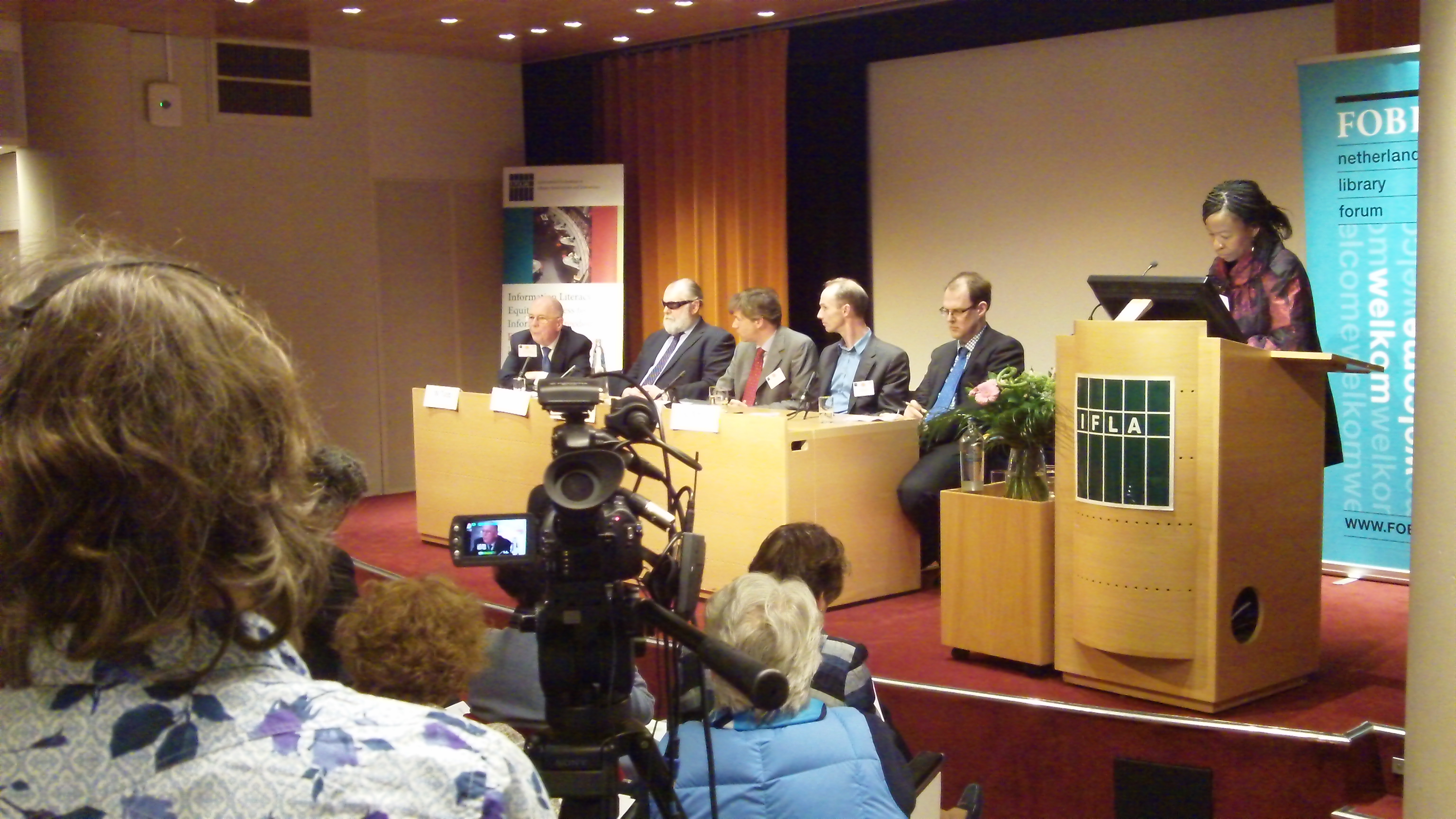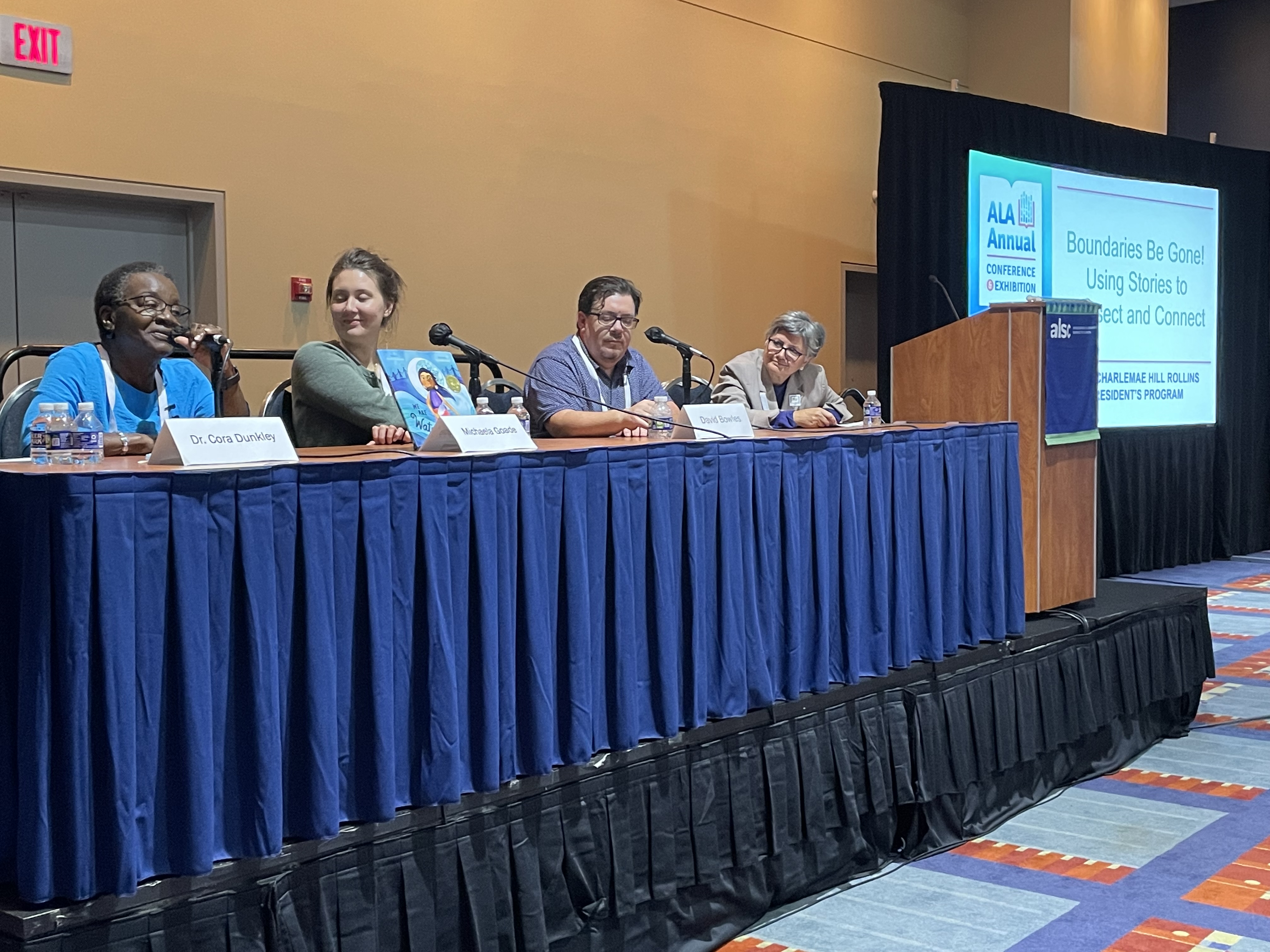|
Virginia Tech Library Systems
VTLS Inc. was a global company that provided library automation software and services to a diverse customer base of more than 1900 libraries in 44 countries. The for-profit company was founded in 1985 by Dr. Vinod Chachra, who became the President and CEO of the company. VTLS originated as "Virginia Tech Library Systems", an automated circulation and cataloging system created for Virginia Tech’s Newman Library in 1975. In addition to its headquarters in Blacksburg, Virginia, United States, VTLS had five international offices in Australia, Brazil, India, Malaysia and Spain. VTLS was one of the few ISO 9001:2008 quality-certified companies within the library industry for many years. The company was acquired by Innovative Interfaces in 2014. History VTLS Inc. was the offspring of a project launched in 1974 at Virginia Polytechnic Institute and State University's (Virginia Tech’s) Newman Library, a member of the Association of Research Libraries with more than 2 million catalo ... [...More Info...] [...Related Items...] OR: [Wikipedia] [Google] [Baidu] |
Privately Held Company
A privately held company (or simply a private company) is a company whose Stock, shares and related rights or obligations are not offered for public subscription or publicly negotiated in their respective listed markets. Instead, the Private equity, company's stock is offered, owned, traded or exchanged privately, also known as "over-the-counter (finance), over-the-counter". Related terms are unlisted organisation, unquoted company and private equity. Private companies are often less well-known than their public company, publicly traded counterparts but still have major importance in the world's economy. For example, in 2008, the 441 list of largest private non-governmental companies by revenue, largest private companies in the United States accounted for $1.8 trillion in revenues and employed 6.2 million people, according to ''Forbes''. In general, all companies that are not owned by the government are classified as private enterprises. This definition encompasses both publ ... [...More Info...] [...Related Items...] OR: [Wikipedia] [Google] [Baidu] |
RFID
Radio-frequency identification (RFID) uses electromagnetic fields to automatically identify and track tags attached to objects. An RFID system consists of a tiny radio transponder called a tag, a radio receiver, and a transmitter. When triggered by an electromagnetic interrogation pulse from a nearby RFID reader device, the tag transmits digital data, usually an identifying inventory number, back to the reader. This number can be used to track inventory goods. Passive tags are powered by energy from the RFID reader's interrogating radio waves. Active tags are powered by a battery and thus can be read at a greater range from the RFID reader, up to hundreds of meters. Unlike a barcode, the tag does not need to be within the line of sight of the reader, so it may be embedded in the tracked object. RFID is one method of automatic identification and data capture (AIDC). RFID tags are used in many industries. For example, an RFID tag attached to an automobile during product ... [...More Info...] [...Related Items...] OR: [Wikipedia] [Google] [Baidu] |
OCLC
OCLC, Inc. See also: is an American nonprofit cooperative organization "that provides shared technology services, original research, and community programs for its membership and the library community at large". It was founded in 1967 as the Ohio College Library Center, then became the Online Computer Library Center as it expanded. In 2017, the name was formally changed to OCLC, Inc. OCLC and thousands of its member libraries cooperatively produce and maintain WorldCat, the largest online public access catalog in the world. OCLC is funded mainly by the fees that libraries pay (around $217.8 million annually in total ) for the many different services it offers. OCLC also maintains the Dewey Decimal Classification system. History OCLC began in 1967, as the Ohio College Library Center, through a collaboration of university presidents, vice presidents, and library directors who wanted to create a cooperative, computerized network for libraries in the state of Ohio. The gr ... [...More Info...] [...Related Items...] OR: [Wikipedia] [Google] [Baidu] |
NISO
The National Information Standards Organization (NISO; ) is a United States non-profit standards organization that develops, maintains and publishes technical standards related to publishing, bibliographic and library applications. It was founded in 1939 as the Z39 Committee, chaired from 1963-1977 by Jerrold Orne, incorporated as a not-for-profit education association in 1983, and assumed its current name in 1984. Organization NISO offers two membership categories, "voting members" and "library standards alliance". In January 2016, the "voting members" included 77 large corporations, mostly publishers, and large library organizations such as the American Library Association.Member companies ". National Information Standards Organization. Retrieved March 6, 2016. Voting members elect Directors and comment and vote on standards. The ... [...More Info...] [...Related Items...] OR: [Wikipedia] [Google] [Baidu] |
International Federation Of Library Associations And Institutions
The International Federation of Library Associations and Institutions (IFLA) is an international body representing the interests of people who rely on Library, libraries and information professionals. A non-governmental, not-for-profit organization, IFLA was founded in Scotland in 1927 with headquarters at the National Library of the Netherlands in The Hague. IFLA sponsors the annual IFLA World Library and Information Congress, promoting Freedom of information, access to information, ideas, and works of imagination for social, educational, cultural, democratic, and economic empowerment. IFLA also produces several publications, including ''IFLA Journal''. IFLA partners with UNESCO, resulting in several jointly produced manifestos. IFLA is also a founding member of Blue Shield International, Blue Shield, which works to protect the world's cultural heritage when threatened by wars and natural disaster. History IFLA was founded in Edinburgh, Scotland, on 30 September 1927, when lib ... [...More Info...] [...Related Items...] OR: [Wikipedia] [Google] [Baidu] |
EDUCAUSE
Educause is a nonprofit association in the United States whose mission is "to advance higher education through the use of information technology". Membership is open to institutions of higher education, corporations serving the higher education information technology market, and other related associations and organizations. Overview The association provides networking and other platforms for higher education IT professionals to generate and find content on best practices and to engage their peers. Examples include professional development opportunities, print and electronic publications, including e-books and the magazine ''Educause Review'' (), strategic policy advocacy, teaching and learning initiatives, applied research, special interest discussion groups, awards for leadership, and a resource center for IT professionals, such as Campus Privacy Officers, in higher education. Major initiatives of Educause include the Core Data Service, the Educause Center for Analysis and Resea ... [...More Info...] [...Related Items...] OR: [Wikipedia] [Google] [Baidu] |
Coalition For Networked Information
The Coalition for Networked Information (CNI) is an organization whose mission is to promote networked information technology as a way to further the advancement of intellectual collaboration and productivity. Overview The Coalition for Networked Information (CNI), a joint initiative of the Association of Research Libraries (ARL) and EDUCAUSE, promotes the use of digital information technology to advance scholarship and education. In establishing the Coalition under the leadership of founding Executive Director Paul Evan Peters, these sponsor organizations sought to broaden the community’s thinking beyond issues of network connectivity and bandwidth to encompass digital content and advanced applications to create, share, disseminate, and analyze such content in the service of research and education. CNI works on a broad array of issues related to the development and use of digital information in the research and education communities. CNI fosters connections and collaboration ... [...More Info...] [...Related Items...] OR: [Wikipedia] [Google] [Baidu] |
Book Industry Study Group
The Book Industry Study Group, Inc. (BISG) is an American trade association for policy, technical standards and research related to books and similar products. The mission of BISG is to simplify logistics for publishers, manufacturers, suppliers, wholesalers, retailers, librarians and others engaged in the business of print and electronic media. History The Book Industry Study Group, Inc. (BISG) began at the annual conference of the Book Manufacturers Institute in November 1975. Here, a few publishers and manufacturers met informally with representatives of several trade associations to discuss the urgent need to improve the industry's research capability. Once begun, this small group invited others to join in sponsoring a seminal study of book industry information needs on which a future program could be based. BISG was incorporated as a not-for-profit corporation in February 1976 and its Report on Book Industry Information Needs was completed and published in April 1976. The ... [...More Info...] [...Related Items...] OR: [Wikipedia] [Google] [Baidu] |
American Library Association
The American Library Association (ALA) is a nonprofit organization based in the United States that promotes libraries and library education internationally. It is the oldest and largest library association in the world. History 19th century During the Centennial Exposition in Philadelphia in 1876, 103 librarians, 90 men, and 13 women, responded to a call for a "Convention of Librarians" to be held October 4–6, 1876, at the Historical Society of Pennsylvania. At the end of the meeting, according to Edward G. Holley in his essay "ALA at 100", "the register was passed around for all to sign who wished to become charter members", making October 6, 1876, the date of the ALA's founding. Among the 103 librarians in attendance were Justin Winsor (Boston Public Library and Harvard University), William Frederick Poole ( Chicago Public Library and Newberry College), Charles Ammi Cutter ( Boston Athenæum), Melvil Dewey, Charles Evans ( Indianapolis Public Library) and Richa ... [...More Info...] [...Related Items...] OR: [Wikipedia] [Google] [Baidu] |
Drupal
Drupal () is a free and open-source web content management system (CMS) written in PHP and distributed under the GNU General Public License. Drupal provides an open-source back-end framework for at least 14% of the top 10,000 websites worldwide and 1.2% of the top 10 million websites—ranging from personal blogs to corporate, political, and government sites. Drupal can also be used for knowledge management and for business collaboration. , the Drupal community had more than 1.39 million members, including 124,000 users actively contributing, resulting in more than 50,000 free modules that extend and customize Drupal functionality, over 3,000 free themes that change the look and feel of Drupal, and at least 1,400 free distributions that allow users to quickly and easily set up a complex, use-specific Drupal in fewer steps. The base of Drupal is known as Drupal core, contains basic features common to content-management systems. These include user account registration and mai ... [...More Info...] [...Related Items...] OR: [Wikipedia] [Google] [Baidu] |



